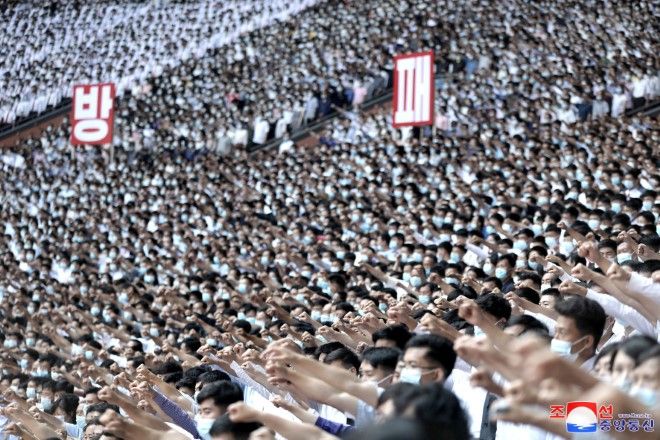
Introduction
In a show of strength and defiance, North Korea recently organized massive rallies within its borders, vehemently denouncing the United States. The rallies served as a platform for the North Korean government to express its discontent and convey its determination to engage in a “war of revenge” against the United States. This article delves into the key details surrounding these rallies and the implications they hold for regional stability.
Denouncing the United States: A Display of North Korean Resentment
The Rallies and Their Significance
Thousands of North Korean citizens, alongside government officials and military personnel, gathered in various cities across the nation to participate in the highly charged rallies. These gatherings showcased the deep-rooted animosity harbored by North Korea towards the United States. The protesters brandished banners, waved flags, and chanted anti-U.S. slogans, while prominent leaders delivered impassioned speeches denouncing American policies and actions.
Unearthing Historical Tensions
To understand the rationale behind these rallies, it is crucial to recognize the long-standing tensions between North Korea and the United States. The roots of this strained relationship can be traced back to the Korean War (1950-1953) when the United States supported South Korea against the communist regime of North Korea. The subsequent division of Korea into two separate nations laid the foundation for ongoing geopolitical disputes and ideological conflicts.
North Korea’s Vow for Retaliation: A ‘War of Revenge’
Escalating Rhetoric and Threats
During the rallies, North Korean leaders made bold and provocative statements, declaring their intent to wage a “war of revenge” against the United States. These threats, although not uncommon, have raised concerns among the international community due to North Korea’s pursuit of nuclear weapons and its unpredictable behavior.
The Motives behind the Retaliatory Stance
North Korea’s aggressive stance can be attributed to several factors. Firstly, the country perceives the United States as a threat to its sovereignty and views its military presence in the region as a hostile act. Additionally, North Korea’s pursuit of nuclear weapons is driven by a desire for self-preservation and a means to ensure its survival in a volatile international landscape. These perceived threats have fueled North Korea’s determination to retaliate against the United States.

Implications for Regional Stability
Heightened Tensions and Diplomatic Challenges
North Korea’s rallies and threats of revenge contribute to an escalation of tensions in the region. The United States, along with its allies, must carefully navigate this delicate situation to avoid a further deterioration of relations. Effective diplomacy, open communication channels, and constructive dialogue are crucial to prevent any unintended conflicts or misunderstandings.
Impact on Regional Security
The ongoing tensions between North Korea and the United States have significant implications for regional security. The possibility of military confrontation or a miscalculated move by either party could lead to dire consequences, affecting not only the Korean Peninsula but also neighboring countries in the region. Therefore, it is imperative for all stakeholders involved to prioritize peaceful resolutions and work towards de-escalation.
Conclusion
The recent rallies held in North Korea, denouncing the United States and vowing a “war of revenge,” have intensified tensions in the region. North Korea’s pursuit of nuclear weapons and its aggressive rhetoric pose significant challenges to regional stability. It is crucial for the international community to engage in diplomatic efforts, promote dialogue, and seek peaceful resolutions to prevent further escalation.
